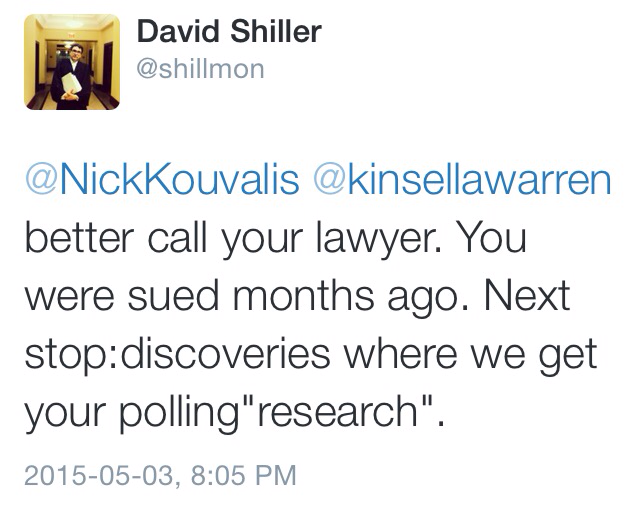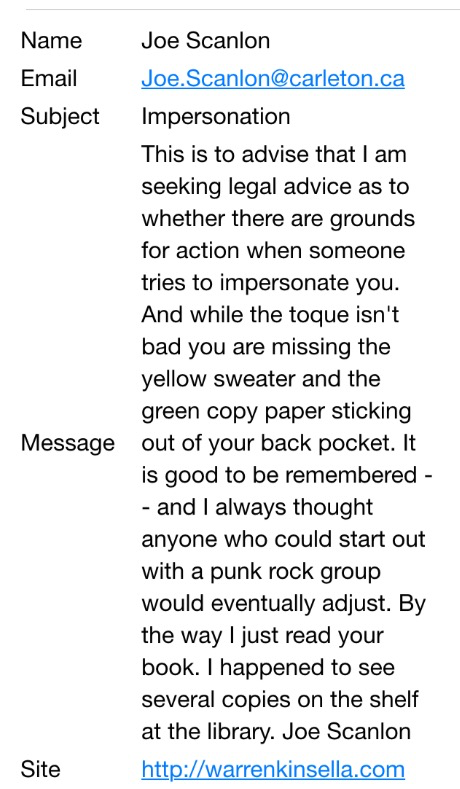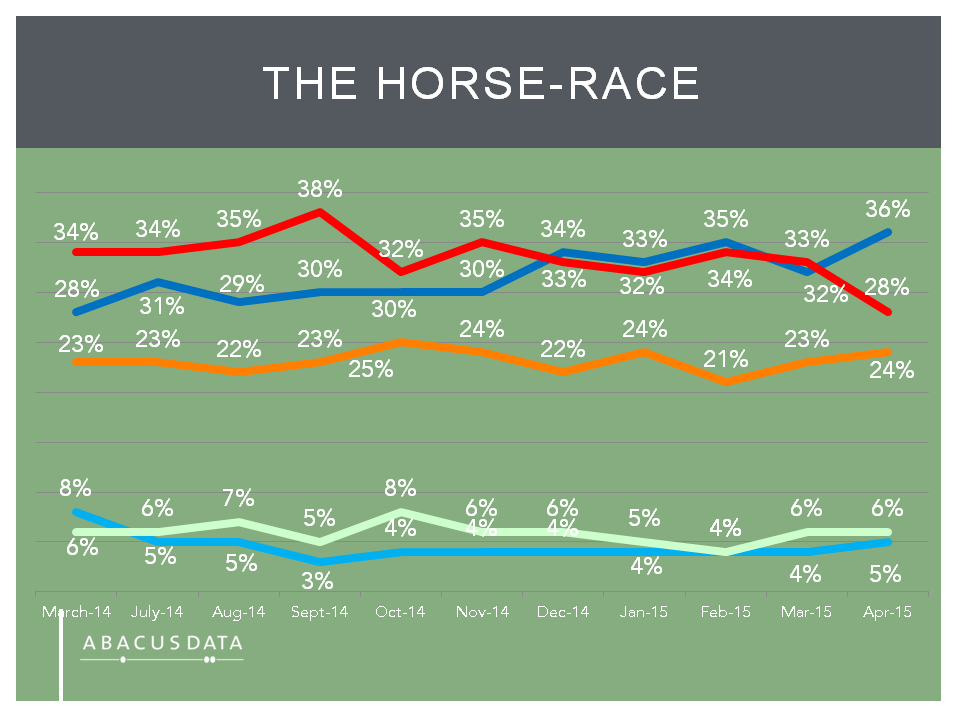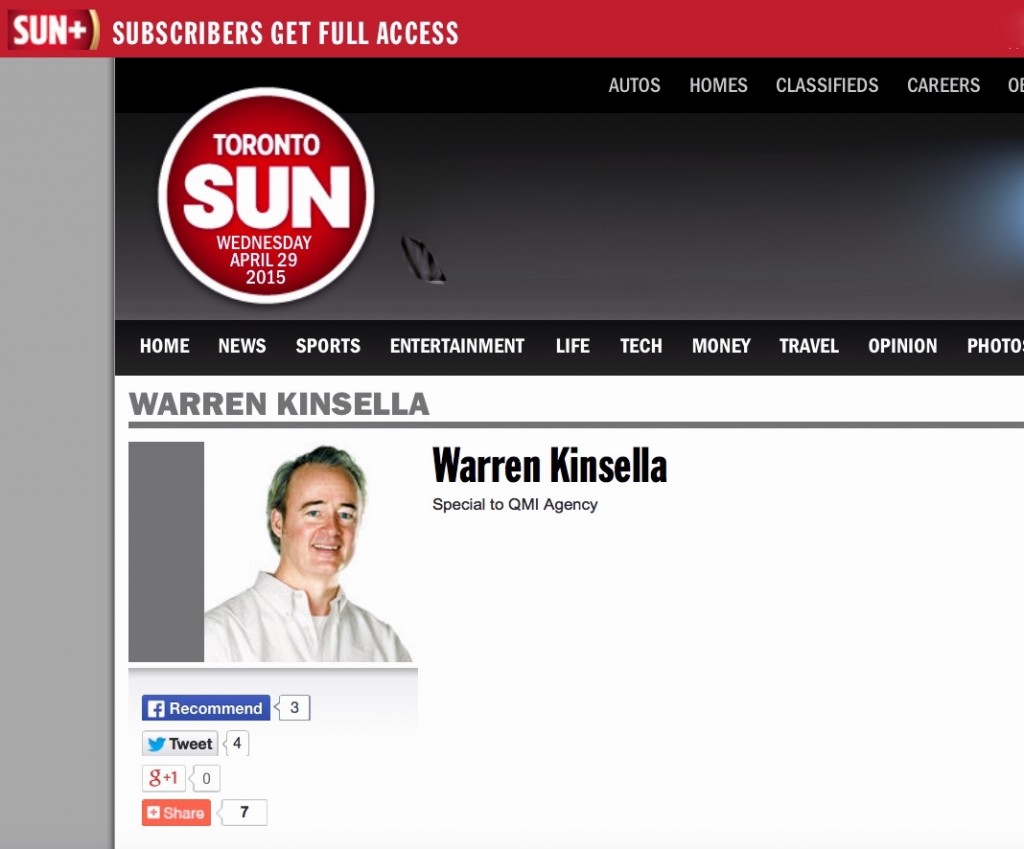When polled, voters will always say that they dislike attack ads. Always.
But political attack ads are like car crashes on the side of the highway. Nobody likes those, either, but everyone always slows down to take a look, don’t they?
As reviled as they may be, attack ads are the ads that voters remember. They’re the ads that have the greatest impact on Election Day. Disliked as they may be, attack ads are extremely motivational.
That is, they motivate wavering supporters of the authors of the ads (say, the Conservative Party of Canada) to get out and vote. And they motivate those affiliated with the target of the ads (say, the Liberal Party of Canada) to stay home on Election Day, and contemplate the wallpaper.
That’s what happened in 2006, 2008 and 2011, of course. The Conservatives blanketed the airwaves to motivate their core vote, and de-motivate traditional Grit voters.
Thus, Paul Martin was depicted in 2006 as a multi-millionaire who flew his steamships under foreign flags to avoid paying Canadian taxes – while, with Stephen Harper, “they see a leader who is more like one of them,” as it was famously put in one Conservative ad.
Thus, Stephane Dion was depicted in 2008 as an out-of-touch academic elitist with a foreign passport, someone who was “not a leader, not worth the risk.” While Stephen Harper was a sweater vest-wearing hockey Dad, one who believed that “family is everything.”
Thus, Michael Ignatieff was depicted in 2011 as a literal foreigner, a cold-blooded artistocrat who had not lived in Canada for three decades, and who was “just visiting.” While Stephen Harper was working long hours, photos of his family over his shoulder, sipping Tim’s from a Beatles coffee mug.
The objective, every time, was to depict successive Liberal leaders as foreigners – foreigners to Canada, and (in particular) foreigners to the values of everyday Canadians. While Stephen was just like them, a Tim Horton’s-drinking hockey Dad. The Everyman.
In a contest between the Everyman and the Elitist, the Everyman will win, ten times out of ten. And, in the coming contest between Stephen Harper and Justin Trudeau – with a supporting role being played by Tom Mulcair – the Conservative Party plans to again do what they did so successfully before. Make it a choice between the Everyman and the Elitist. The Regular Guy versus the Rich Guy. The guy who is Middle Class, taking on the guy who Isn’t.
Justin Trudeau talks about the middle class a lot. He has done so going back to his very first speech as a Liberal leadership aspirant, in his home riding of Papineau. He mentions the amorphous “middle class” every chance he gets, in fact. He did it again, in both official languages, when responding to last week’s federal budget.
The problem, of course, is that many Canadians suspect that Justin Trudeau isn’t middle class. He may know how to say those words, but they believe he’s never actually lived those words. And that’s clearly why, inter alia, Stephen Harper has taken to reminding Trudeau in the Commons that he is a trust fund kid – and why they positively love it when Trudeau claims to be preoccupied with the middle class.
“Mitt Romney talked about the middle class a lot, too,” one smart Conservative said to me over lunch, recently. “But he sure didn’t look or sound very middle class, did he?”
TV is about pictures, and all of the best political ads therefore make effective use of pictures to make their point. As such, get ready for lots of visuals of the Tim Horton’s-loving Hockey Dad Everyman, schlepping his son’s hockey bag to early-morning hockey rinks.
And lots of footage of the trust fund kid motoring around town in an inherited Mercedes Benz 300SL, worth somewhere between $1 and $2 million, locks flowing. Or growing up in that mansion on Sussex Drive, the one with the subsidized rent. Or looking less like an average Canadian, and a bit more like Johnny Depp in Pirates of the Caribbean.
In effect, the Conservatives plan to remind voters, over and over, that Justin Trudeau has never had to worry about paying the mortgage or putting food on the table. While Stephen Harper is – to recall the words that 2006 ad, in which they spoke directly to the Canadian middle class – “a leader who is more like one of them.”
The Conservatives are readying to do to Trudeau what they did to Martin, Dion and Ignatieff: they getting ready to turn Trudeau’s own words/life against him, and at precisely the wrong time, too. They are getting ready to say that Justin Trudeau is a risk, and that he’s just visiting the middle class.
Will it work? Well, it sure did in 2006, 2008 and 2011. The Conservatives think it will again in 2015.
Comments (44)





